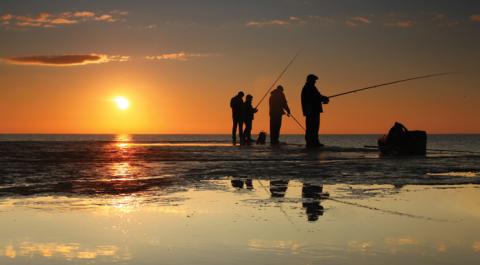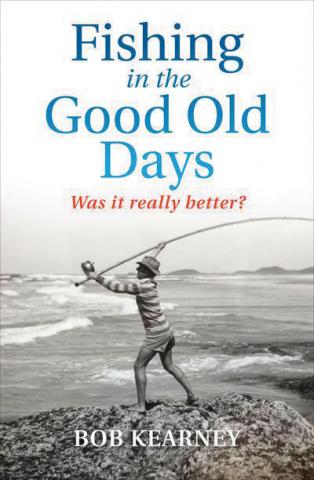Author Bob Kearney shares some critical perspectives about the future of fishing along with spectacular stories of past adventures
By Professor Colin Buxton


Few people with even a passing interest in fishing would doubt that fishing was better in days gone by. Like the old surfing adage: ‘You should have been here yesterday!’, it is perhaps in our nature to reflect fondly on the best of past experiences and forget about the many days when we caught nothing or sat on the beach in poor weather, waiting for the right conditions.
Bob Kearney is one of the lucky individuals who has combined a passion for fishing with a distinguished career in fisheries science and marine ecosystem management. In this book of short stories, he recalls his many fishing adventures: his obsession as a five-year-old with catching a jewfish, the characters he met along the way, the evolution of fishing gear and techniques, his run-in with the local fisheries inspector and the many spectacular fishing days.
This book is a very good read. After all, who can boast about catching more than 100 Tailor in one night, jewfish of more than 50 pounds (22.7 kilograms) rather regularly,
or the excitement of catching Pacific Bonefish on light tackle on the sandflats of New Caledonia?
What makes this book so entertaining is how Bob uses his academic training to constantly ask questions about why things happen in a particular way, what bait is best for an area or species, or why fish behave this way or that. It constantly challenges the reader.
Aside from the fish tales, to my mind the book is a call to action – one from a highly respected and credentialled member of both the recreational fishing fraternity and Australia’s scientific community. He notes that the present day recreational take for many inshore species often exceeds that of the commercial sector (which is often blamed for a lack of fish). Importantly, he notes that knowledge of and the management of the recreational take lags well behind that of the commercial sector. Like so many things that affect the environment, it is a numbers game; the growing numbers of recreational fishers are having an ever-increasing impact on the fishery.
Recognising that fishing reduces the numbers of fish in a population, Bob explores the often-controversial topics of overfishing, fisheries management and the threats to the marine environment. Where these issues have been scientifically assessed, fishing activity is often well down the list in terms of greatest impacts on the health of a fishery.
He is highly critical of the practice of locking fishers out of so-called marine protected areas, which he says does little to address more pervasive threats such as habitat destruction, pollution, introduced marine pests and climate change. Bob says the time is now for both sectors, commercial and recreational, to work together to address environmental threats and to ensure sustainable fishing for the future.
Was fishing really better in the good old days? As the author says, there is no easy answer to the question. So, I recommend you read the book to find out. f


Published: Melbourne University Press, March 2022. RRP $34.99





